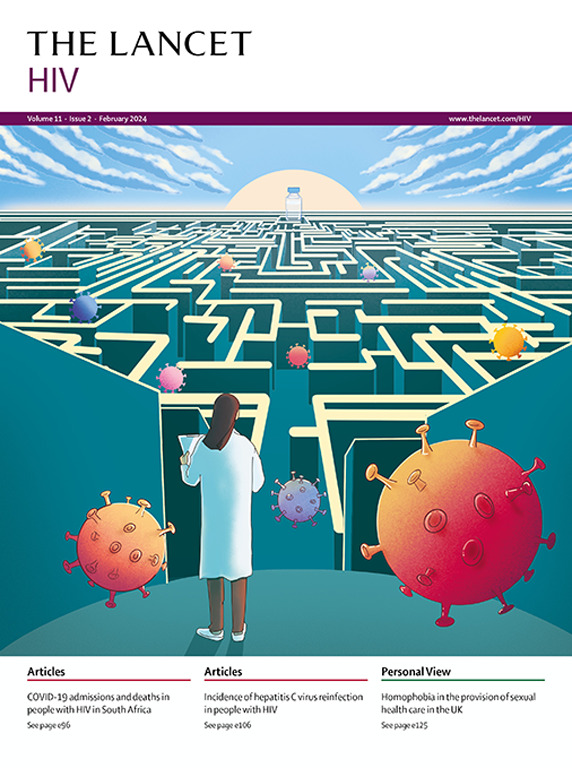在开始抗逆转录病毒治疗前,我们是否需要常规整合酶耐药性检测?
IF 13
1区 医学
Q1 IMMUNOLOGY
引用次数: 0
摘要
口服第二代整合酶链转移抑制剂由于其高耐药屏障,目前已成为全球抗逆转录病毒治疗(ART)的锚定药物。在高收入环境中,指南建议在抗逆转录病毒治疗开始前进行常规蛋白酶和逆转录酶耐药检测,但建议仅对整合酶耐药风险较高的个体进行常规整合酶耐药检测。改进传播整合酶耐药的特征、检测及其临床影响将指导未来临床决策的建议。平衡保护这一重要药物类别的需要与对资源分配和护理复杂性的关注之间的关系是一项重大挑战。将决定是否以及何时在开始抗逆转录病毒治疗前检测整合酶耐药性的责任转移给提供者可能存在问题,特别是考虑到重新评估相关现有建议的必要性存在不确定性。随着我们对整合酶耐药性的理解的发展,优先考虑这一讨论是必不可少的,提供者、研究人员和政策制定者应该参与解决这一重要问题。本文章由计算机程序翻译,如有差异,请以英文原文为准。
Do we need routine integrase resistance testing before starting antiretroviral therapy?
Oral second-generation integrase strand transfer inhibitors are now anchor drugs of antiretroviral therapy (ART) globally due to their high resistance barriers. In high-income settings, guidelines recommend routine protease and reverse transcriptase resistance testing before ART initiation but suggest routine integrase resistance testing only for individuals at elevated risk of integrase resistance. Improved characterisation of transmitted integrase resistance, its detection, and its clinical impact will guide future recommendations for clinical decision making. Balancing the need to protect this important drug class against concerns about resource allocation and care complexity presents a substantial challenge. Shifting the responsibility to providers to decide whether and when to test for integrase resistance before ART initiation can be problematic, particularly given the uncertainty around the need to reassess related available recommendations. As our understanding of integrase resistance evolves, prioritising this discussion is essential, and providers, researchers, and policy makers should engage in addressing this important issue.
求助全文
通过发布文献求助,成功后即可免费获取论文全文。
去求助
来源期刊

Lancet Hiv
IMMUNOLOGYINFECTIOUS DISEASES&-INFECTIOUS DISEASES
CiteScore
19.90
自引率
4.30%
发文量
368
期刊介绍:
The Lancet HIV is an internationally trusted source of clinical, public health, and global health knowledge with an Impact Factor of 16.1. It is dedicated to publishing original research, evidence-based reviews, and insightful features that advocate for change in or illuminates HIV clinical practice. The journal aims to provide a holistic view of the pandemic, covering clinical, epidemiological, and operational disciplines. It publishes content on innovative treatments and the biological research behind them, novel methods of service delivery, and new approaches to confronting HIV/AIDS worldwide. The Lancet HIV publishes various types of content including articles, reviews, comments, correspondences, and viewpoints. It also publishes series that aim to shape and drive positive change in clinical practice and health policy in areas of need in HIV. The journal is indexed by several abstracting and indexing services, including Crossref, Embase, Essential Science Indicators, MEDLINE, PubMed, SCIE and Scopus.
 求助内容:
求助内容: 应助结果提醒方式:
应助结果提醒方式:


